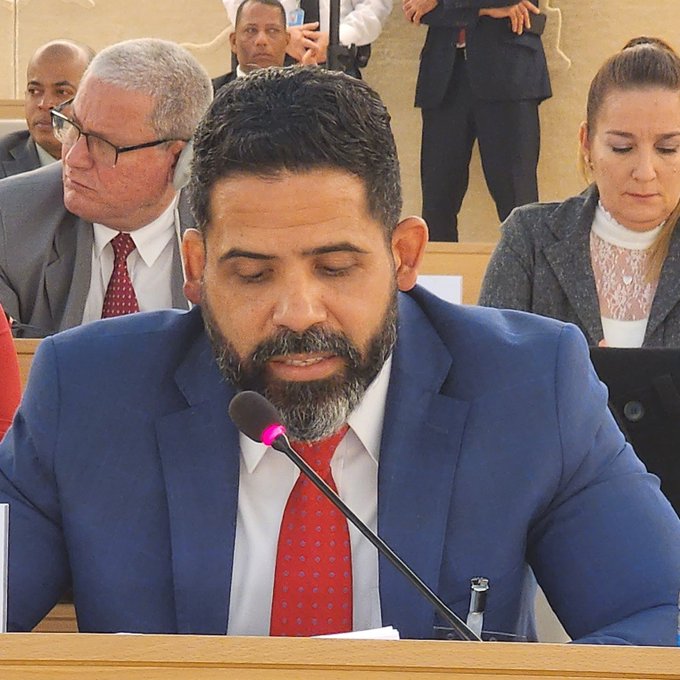The representative of Cuba’s civil society stated that an essential step in this process was the enactment of the new 2019 Constitution, which regulates a broad catalog of rights and freedoms.
Addressing the presentation of Cuba’s report to the fourth cycle of the United Nations Human Rights Council’s Universal Periodic Review (UPR), Pérez added that it also establishes a system of guarantees to protect and defend human rights enshrined in the legal system.
He pointed out that the Cuban political system is truthfully popular; he cited as an example the diverse democratic, representative, and direct consultation mechanisms through which civil society actively participates in political decision-making.
The jurist pointed out that since the last UPR held in Cuba in 2018, two popular consultations, two national referendums, and several specialized consultations have been held in his country.
Upon responding to the speeches by some countries on Cuba’s report, Pérez reiterated that elections in Cuba are free, democratic, and transparent, with a system without barriers, voluntary voting, and citizens eligible to elect and be elected aged 16 and 18, respectively.
He also noted that Cuba is a socialist State of law and social justice, where the principles of constitutional supremacy and legality are recognized and respected and recalled that the Constitution establishes secularism and prohibits discrimination based on religious beliefs in a territory where there are about 1,850 institutions of this kind and fraternal institutions, with approximately 1,500,000 members.
Kenia Vasallo, adviser to the Ministry of Justice, in turn, highlighted the effectiveness and application of the Family Code approved in 2022, on which 1,312 same-sex marriages, 84 non-maarital unions, 282 patrimonial agreements, and 39 delegations on parental responsibility, among other data, have already been legalized.
jrr/iff/mem/mar









